What is Retrieval Practice?
Carousel Learning helps you implement retrieval practice, giving teachers an easy-to-use platformthat boosts student learning and reduces teacher workload.
Retrieval practice is one of the most effective ways to strengthen long-term memory and deepen student engagement.
But how exactly does retrieval practice work, and how can it transform learning in your classroom?

Retrieval practice is a learning strategy where students actively recall information from memory, rather than passively reviewing it.
Sometimes called the "Testing Effect", cognitive science research has shown that the act of trying to remember ("retrieving") information improves the ability to remember it in the future.
There are three important components to retrieval practice:
![[object Object]](/_next/static/media/unlimited.704ad6da.png)
1. Retrieval
The act of recalling information that has been previously learned.
![[object Object]](/_next/static/media/time.f3de0aa8.png)
2. Spacing
The elapsed time between retrieval episodes featuring that information.
![[object Object]](/_next/static/media/memory.61582ebe.png)
3. Repetition
The number of times a student has retrieved that information.
Countering the 'Forgetting Curve'
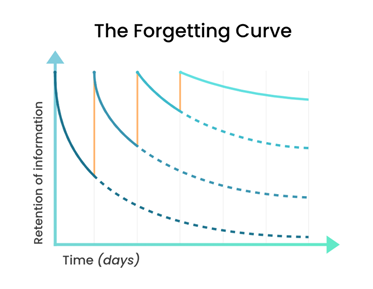
Retrieval Practice counters the 'Forgetting Curve', a psychological model that describes how we forget information over time.
Frequent retrieval can interrupt the forgetting curve, leading to stronger long-term memories.
Why is retrieval practice great for student learning?
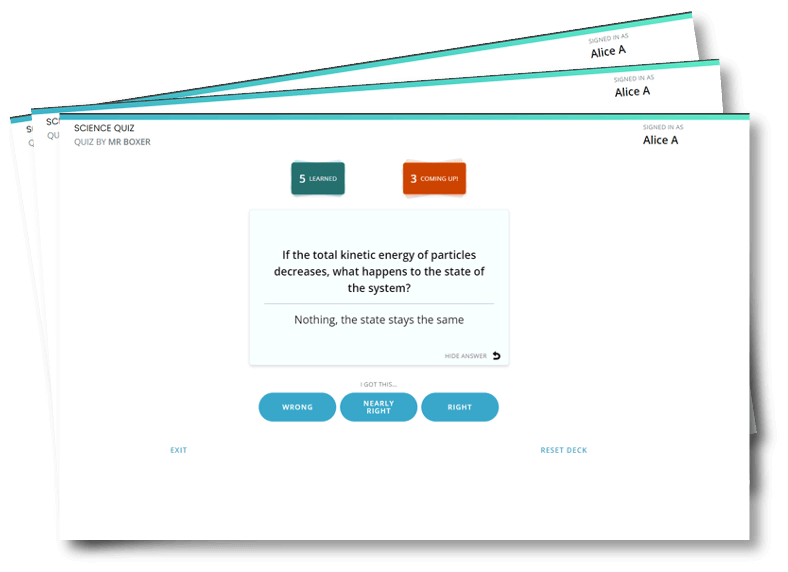
In all school subjects, students are expected to learn and memorise foundational knowledge: facts, concepts, processes and more.
Retrieval practice can be integrated into lessons and homework to reinforce this foundational knowledge, making it easier for students to apply their knowledge in different contexts, such as exams or problem-solving tasks.
How does Retrieval Practice work in schools?
Let's take a geography question as an example of how retrieval practice works in a classroom setting.
Imagine you taught your students about river features last week. You are continuing that work today and building on their prior learning, so you show them this image:
You now have two options:
Option 1
"Last week, we saw that part C is called a meander..."
It is OK as a reminder, but doesn't provide the student with retrieval practice.
Option 2
"What is the name of part C?"
This encourages them to try to retrieve this information for themselves, and strengthen their memory over the long term.
There is a lot of supporting evidence for using retrieval practice as a strategy for improving long-term memory. For example, Agarwal, Nunes and Blunt's
review of research on Retrieval Practice
found that "retrieval practice consistently benefits student learning".Examples of retrieval practice
There are lots of ways of implementing retrieval practice such as:
Asking questions on previous learning
Get the student to revise through self-quizzing
Try to get students to replicate notes or a diagram from memory
Ask students to brain dump e.g. write everything they remember about a topic before comparing it to their notes
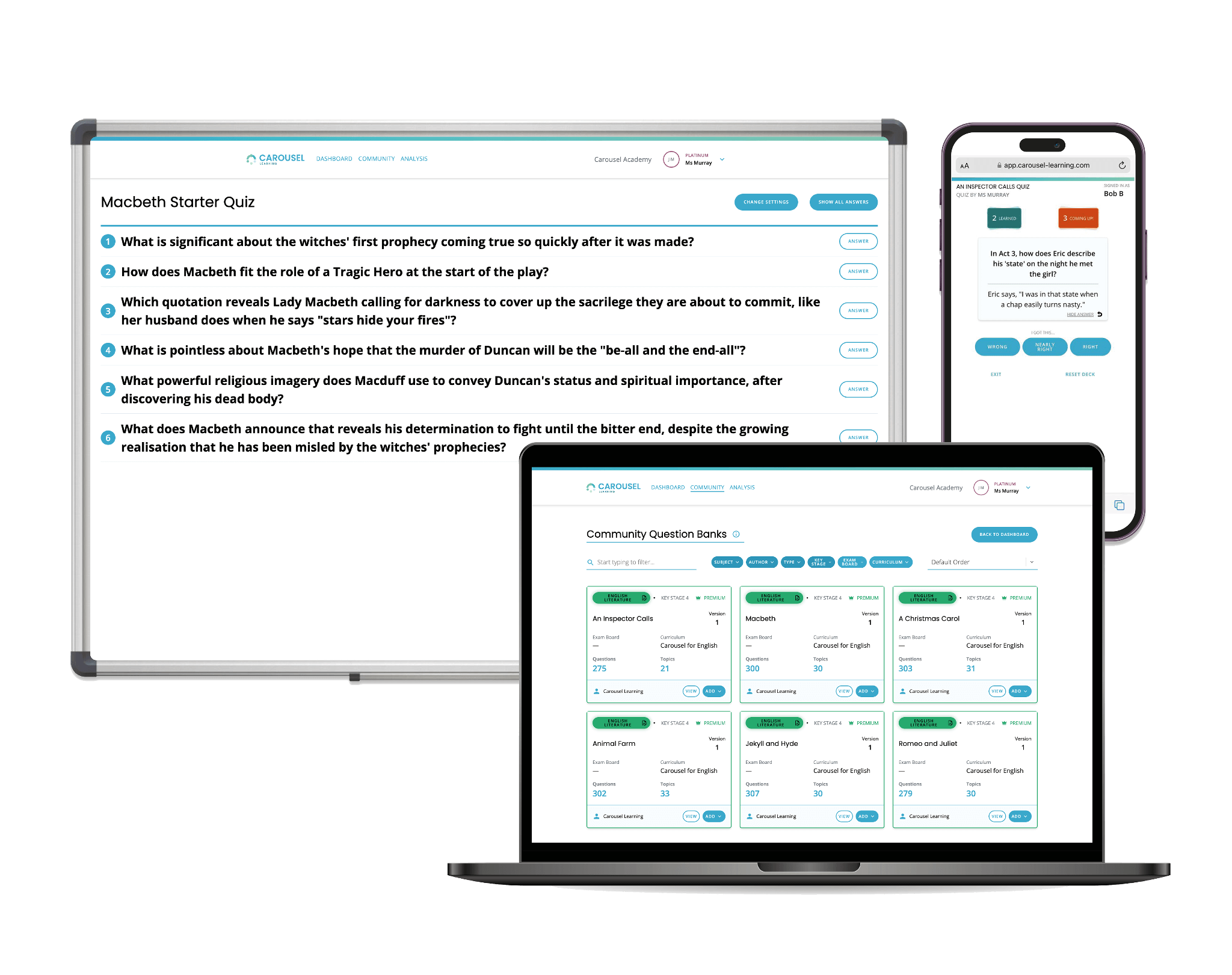
How can Carousel Learning help with retrieval practice?
Carousel Learning can make retrieval practice more effective in your classroom by:
Offering different quiz and flashcard modes to embed spacing and repetition.
Improving children's long-term knowledge retention through teacher-led and student-led retrieval practice.
Reducing teacher workload by eliminating the need to mark books while still providing rich data on understanding.
Key Features
Here are some of Carousel Learning's key features and why they're great for retrieval practice, benefiting your students as learners AND you as a teacher:
Homework
Flashcards and quizzes allowing students to review and test themselves in the same session, reinforcing key information through spaced repetition.Study Packs
Independent study quizzes and flashcards for self-paced retrieval.In-class quizzing
Whiteboard quizzes (starter questions, past homework retrieval, spelling tests etc.) for simple, low-tech retrieval in the classroom.Student self-reflection
Student self-marking of free text quizzes for self-reflection and immediate exposure to the correct answer.C-Scores
Carousel's recommendation of the most impactful questions to ask at a particular point in time, based on data about spacing, repetition and student performance.Carousel Learning's Question Banks
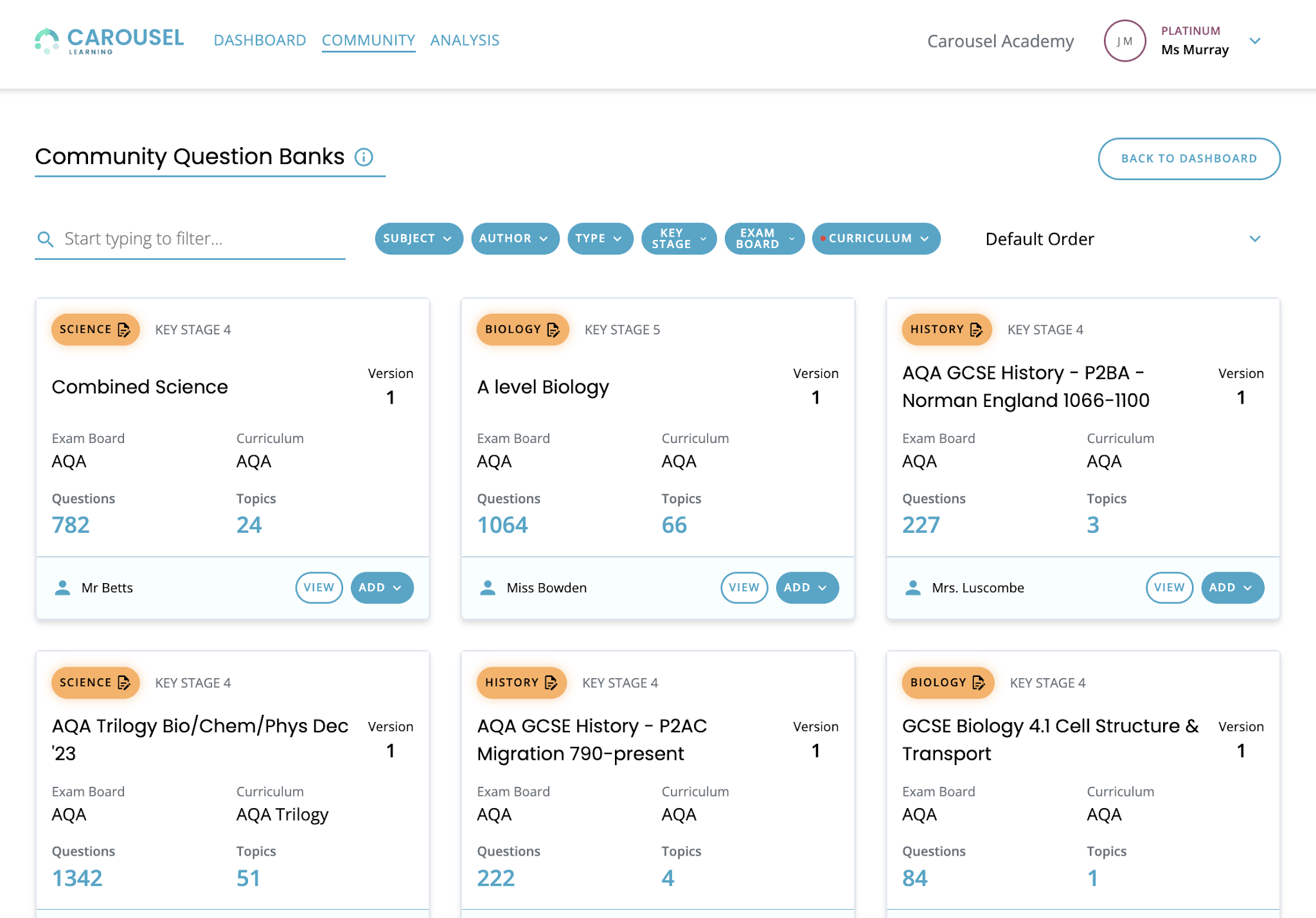
Question Banks are the beating heart of Carousel Learning.
A Question Bank is, essentially, the curriculum conceptualised as a series of questions and answers. Teachers can borrow or adapt from Question Banks in the Carousel Community, or easily create their own.
As well as thousands of teacher-created Question Banks in the Carousel Community covering most subjects and curriculums, Carousel Learning and its partners also offer quality-assured Question Banks in a range of subjects to help you quickly get started.
Ready to see how retrieval practice can transform learning in your classroom?
Take a quick product tour with Adam Boxer, Carousel Learning's Educational Director
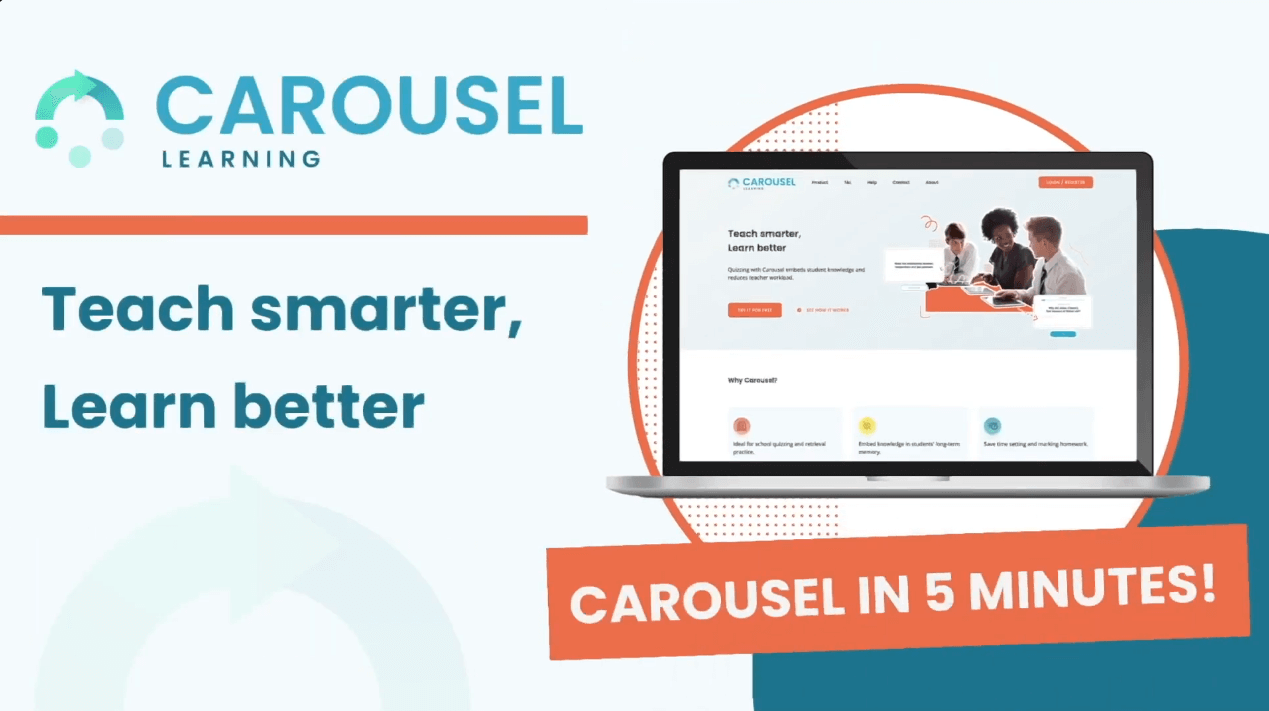
Start your 30-day free trial today to experience Carousel Learning firsthand!


